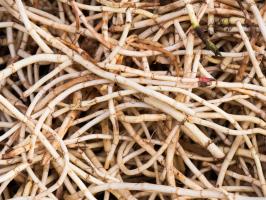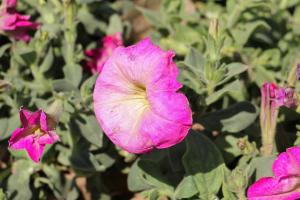Introduction
Rainwater is a natural source of water that has been used by people for centuries. It is a free and abundant resource, and many people believe that it is better for plants than tap water. But is rainwater actually good for pot plants?
Benefits of rainwater for pot plants
One of the main benefits of rainwater for pot plants is that it is free of chemicals and pollutants that can be found in tap water. Tap water can contain high levels of chlorine, fluoride and other chemicals that can be harmful to plants. Rainwater, on the other hand, is pure and free from any additives, making it much more beneficial for plants.
Another benefit of rainwater is that it is rich in nutrients that plants need to grow and thrive. Rainwater contains minerals and trace elements that are essential for plant growth, including nitrogen, potassium and phosphorus. These nutrients are absorbed by the roots of the plants, helping them to grow strong and healthy.
Rainwater is also an ideal pH for plants. Tap water can often be too alkaline or too acidic, which can affect the pH balance of the soil and make it difficult for plants to absorb nutrients. Rainwater, however, has a neutral pH, which is perfect for most plants.
Drawbacks of rainwater for pot plants
While rainwater has many benefits for pot plants, there are also some drawbacks to using it. One of the main drawbacks is that it can be contaminated with pollutants and other harmful substances. Rainwater can pick up pollutants from the air, such as acid rain, which can be harmful to plants. It is also possible for rainwater to contain bacteria and other microorganisms that can cause disease in plants.
Another potential drawback of rainwater is that it can be inconsistent in terms of quantity and quality. Rainfall can vary depending on location and weather conditions. In some areas, rainwater may be scarce or contaminated, which can make it difficult to use for watering plants. In other areas, rainwater may be abundant, but it may be too acidic or alkaline for certain types of plants.
Conclusion
In conclusion, rainwater can be beneficial for pot plants in many ways. It is free of harmful chemicals and pollutants found in tap water, it is rich in nutrients and has a neutral pH that is ideal for most plants. However, it is important to be aware of the potential drawbacks of using rainwater, such as contamination with pollutants and inconsistency in quality and quantity. Ultimately, the decision of whether to use rainwater for pot plants will depend on individual circumstances and preferences.

 how many times do yo...
how many times do yo... how many planted tre...
how many planted tre... how many pine trees ...
how many pine trees ... how many pecan trees...
how many pecan trees... how many plants comp...
how many plants comp... how many plants can ...
how many plants can ... how many plants and ...
how many plants and ... how many pepper plan...
how many pepper plan...

































